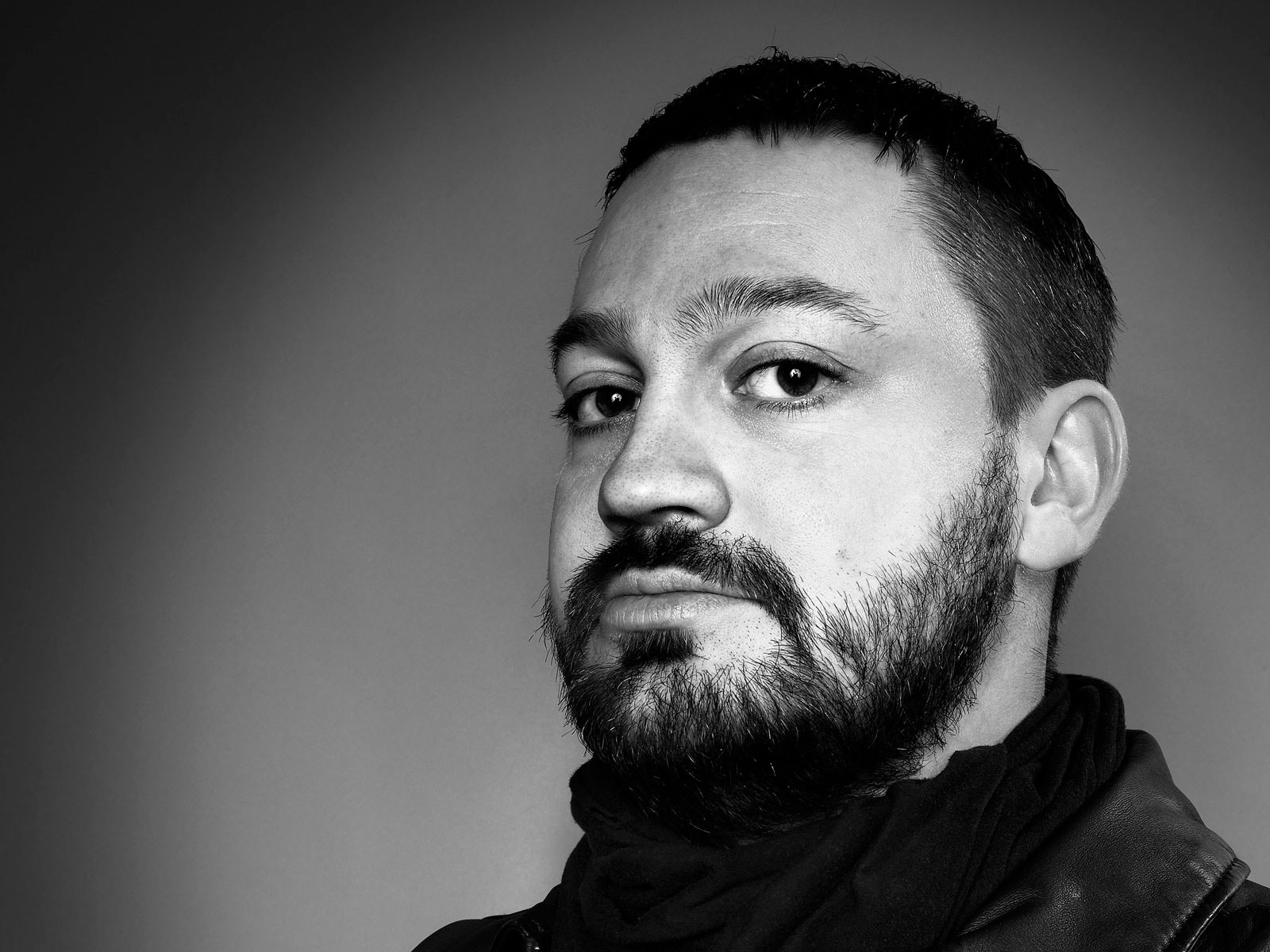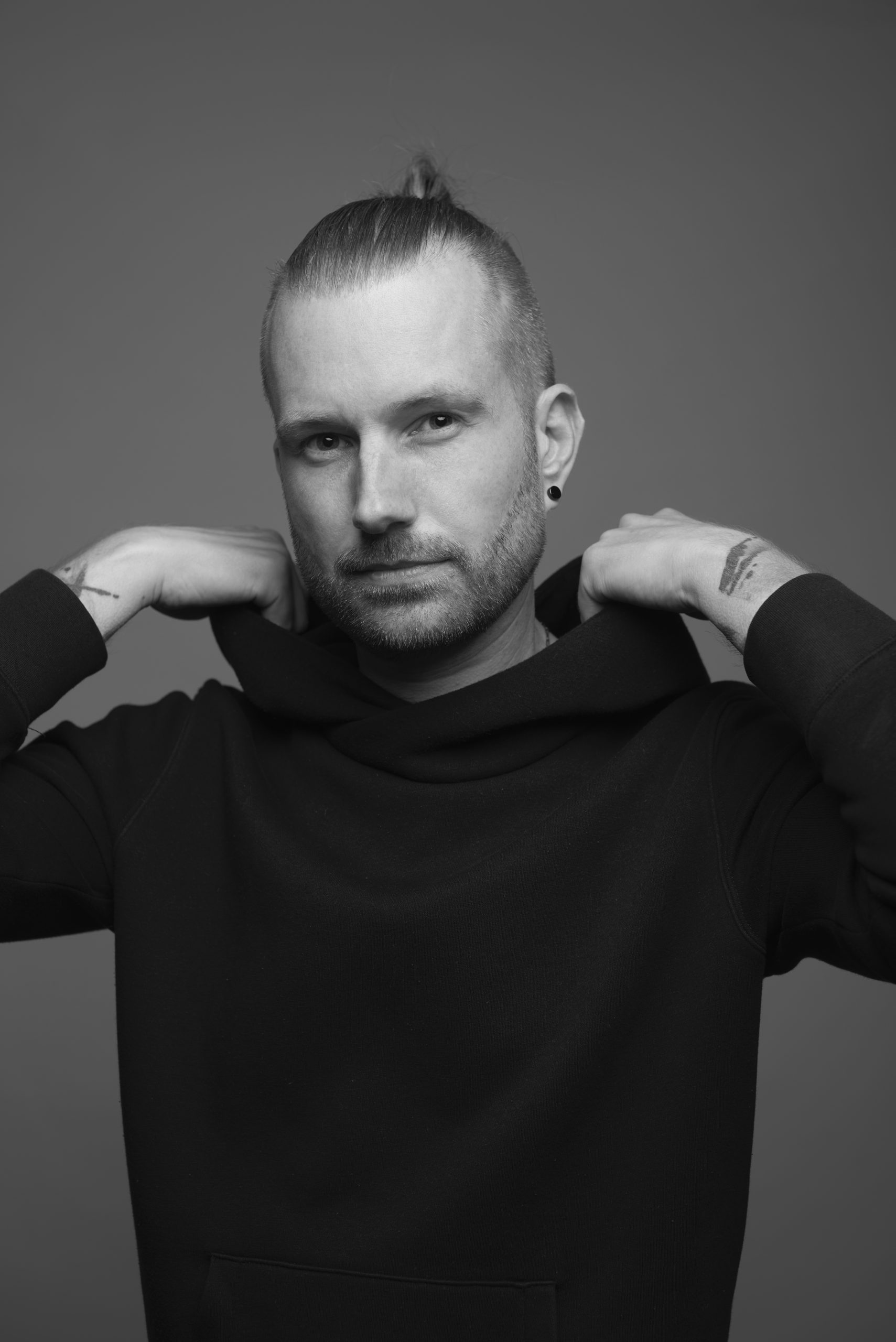5 Minutes With Fritz Kalkbrenner
Born and bred in Berlin, Fritz Kalkbrenner is best known as a vocalist renowned for his mind-blowing live sets and for expertly lacing together soul, house, jazz, funk and hip-hop.
Unlike his brother Paul Kalkbrenner and best friend Sascha Funke, who were driven towards the serious techno beats of Berlin, Fritz looked towards hip-hop and its history as a musical guide.
Later, Kalkbrenner too became heavily involved in techno as a genre and like many others of his generation, became devoted to both the music and the iconic club scene that the city had to offer. He then not only decided that he would begin to create music himself, but that his voice would feature on his tracks.
After appearing on Sascha Funke’s 2003 debut album Bravo with the track Forms and Shapes, Kalkbrenner took the first steps towards becoming the club sensation that he remains to be today. Lending both his haunting vocals and his unfaltering production to venues worldwide, Fritz Kalkbrenner is deservedly known as a German electronic music ambassador.
Hi there, how are you and what are you up to today?
I’m good, thanks for asking. I’m at home here in Berlin preparing myself for another weekend of tour shows.
To those not familiar with you, how would you describe your sound?
That’s actually pretty tough to put in words, basically in fact it is still some sort of electronic dance music which incorporates a lot of influence from stars from way back when as well as real live instruments which come on the production… that’s how would I would put it.
What are the 5 albums and artists that have influenced you the most?
That would be, for example, things like J Dilla – Welcome to Detroit, Marvin Gaye – What’s Going On, that Rhythm and Sound album from Moritz von Oswald and Mark Ernestus, I still dig that first Kool and The Gang record which is way better than their reputation and I was digging that Common record which was called Like Water For Chocolate.
What other artists do you really like at the moment and why?
Right now at the moment I’m digging that new Thai funk band from Texas called Khruangbin. They’re a trio and they’re doing very nice stuff especially on the mix down. The drums are pretty much in the back end whilst the bass is pretty much up front and very present. I think they’re going to release an album on Late Night Records soon. I like those guys right now.
What are some of the key pieces of gear you use to write your tracks?
Back in the day I was producing on an analogue set up but I’ve worked Ableton Live since the first version and this is currently the ninth version so it’s been going on for more than ten years. I’m into Ableton Live as a platform and I know all of the ins and out of that programme and I know how to handle it so that’s basically my main board to draw all of my sketches on.
Who or what introduced you to house music?
That present at the given time in the late nineties where late house music was all over and around like it still is to this very day. All of the club experiences that I had at these times in these legendary clubs that had once been in Berlin but aren’t anymore so I can’t really say it was this or that record or it was this or that person that did it. It was actually some kind of state of mind and a feeling that was going around in those days.
You possess and utilise a lot of singer/ songwriting qualities, how do you incorporate them into your work? What inspired you to do so? Do you find that this kind of skill set takes your productions to a whole other level?
As I humble person I would never say that this is at a different or a next level. It’s just what I do and it doesn’t feel so hard to accomplish that. Usually I have, throughout my productions, like with this album for example, collected up to around 35 sketches or drawings or ideas, however you want to take it. From a very early point on I knew which track qualified itself for being a vocal track or not. If it’s not, I categorised that in a different box but if it does qualify itself to be a vocal track I work on that certain idea and I write the first ideas of the lyrics. That’s the kind of way that the production is pushing the lyrics and the lyrics are pushing the production from a very early point and it tends from one point to the other until the production is all saturated. It’s good to arrange and to record.
As a producer that plays live sets, have you encountered drawbacks of doing so or do you feel it has its advantages?
Playing live has got its pros and cons. A pro is, of course, you perform your own music which is so important to you and you are able to bring this life to an audience. A con is that you can’t be that flexible or that versatile like any DJ could be; if he likes a new or fresh track he can incorporate it in his set but this isn’t something that a live act can’t do. A live act is gifted in being able to present his own stuff but it’s easy to get used to what you’re doing.
You recorded the vocals for your collaboration with your brother Paul ‘Sky And Sand.’ Would (or will) you work together again? How would you compare your musical styles? Would you say that you’re more influenced by soulful sounds and he’s more techno directed?
Right now we don’t have any plans whatsoever for a new collaboration. This is an easy decision because I’m pretty busy with what I’m doing and he’s pretty busy with what he’s doing. He’s already working on new material so we’re fine with that. The main difference with what we’re doing with our style is, let’s put it this way, Paul’s music is more electronic, it’s colder in the best way, while I can easily let my music be influenced by all these styles that I like; soul, jazz, funk.
Berlin has been stereotyped as a hub for techno. Do you agree? If so, what makes it so?
It’s hard for me to judge about that because for me as a born and bred native Berliner, I may have a different point of view on this situation. For someone that is coming to the city and exploring everything and seeing all these advantages and possibilities he could be overwhelmed by the hub that he is now living in. It’s where I’ve lived so it doesn’t appear like that for me. It’s just my home, y’know.
What do you make of the influx of foreign Djs moving to Berlin – a good or a bad thing?
Basically the bottom line is that it’s a good thing for more people to come and for more people to get involved with all of that. It’s pretty fast and it judges by itself. Does that person who is coming to the city as a new young DJ have the quality to stand the point that he is going to? Let them all come and decide by their own quality on what they can bring in.
Do you have any information regarding upcoming releases, projects, DJ mixes or collaborations in the pipeline that you would like to tell us about?
Right now at the moment we are close to releasing the single for the album which is going to be the UK and the US single so we are in Germany and Continental Europe. They’ve already had the single release as well as the album release which hadn’t happened until in the UK and the US so this going to be the UK and the US single. The track’s called Void and we have a whole bunch of interesting remix’s on that from Gui Boratto, André Hommen, Talul, Baron Defoe. So it’s actually a really nice package we have and we’re going to release in the UK and the US like I said some time soon and so is the album and I’m looking forward to it.
Finally, if you weren’t a musician what would you be?
I was a freelance journalist for more than ten years so I think it’s likely that if I didn’t end up as a musician, I’d probably be a journalist.
Fritz’s ‘Ways Over Water’ album tour comes to London’s Electric on February 28th. More info and tickets HERE


